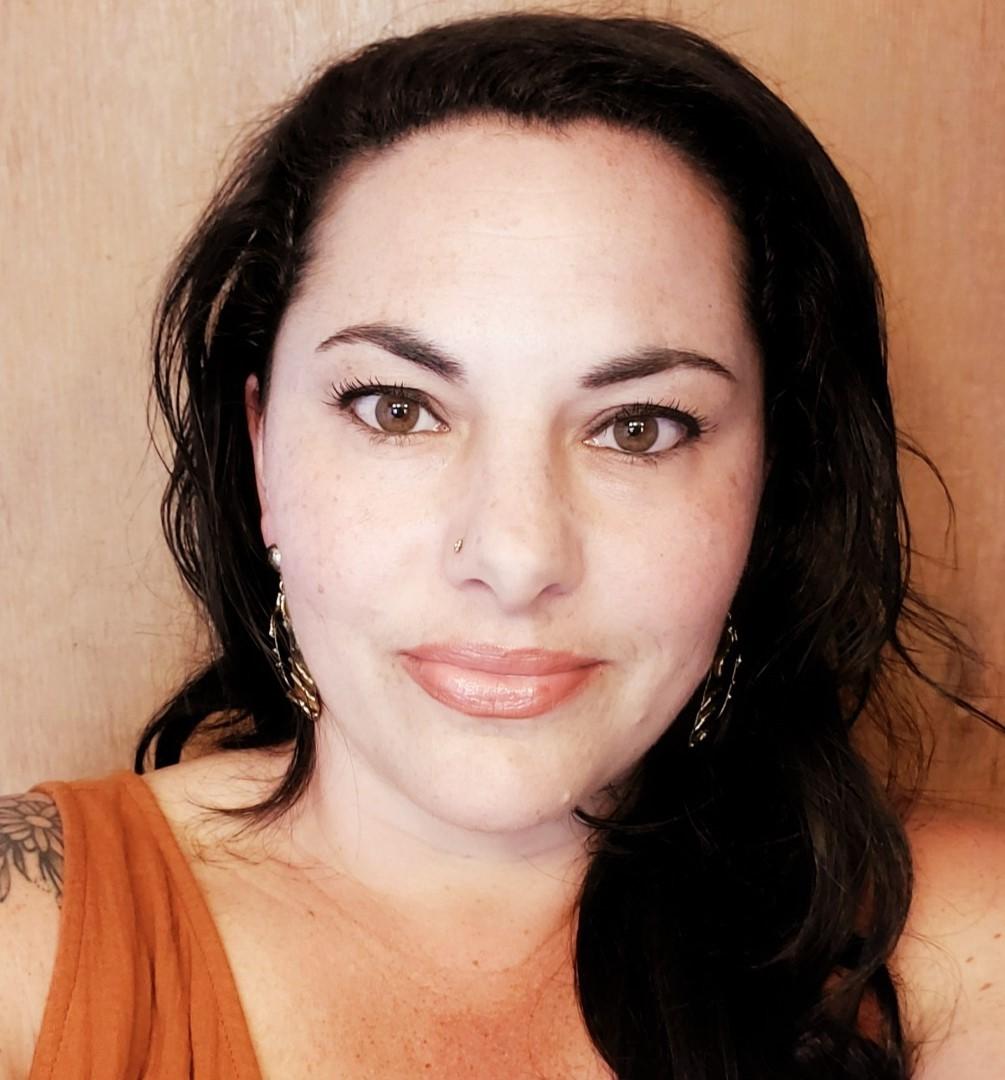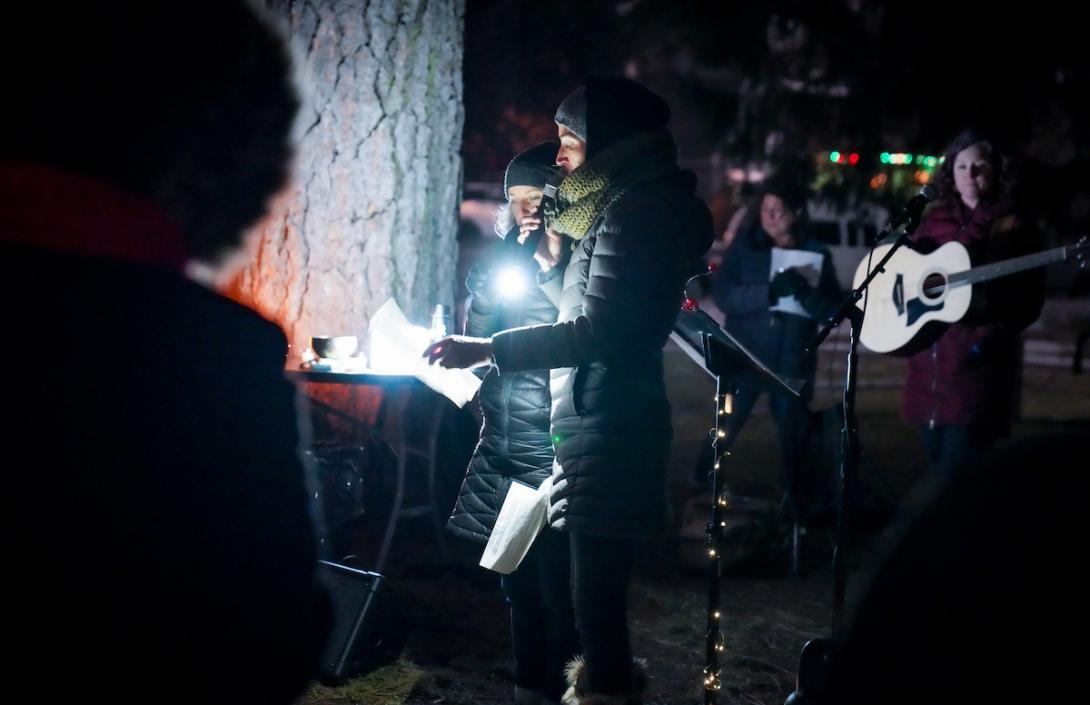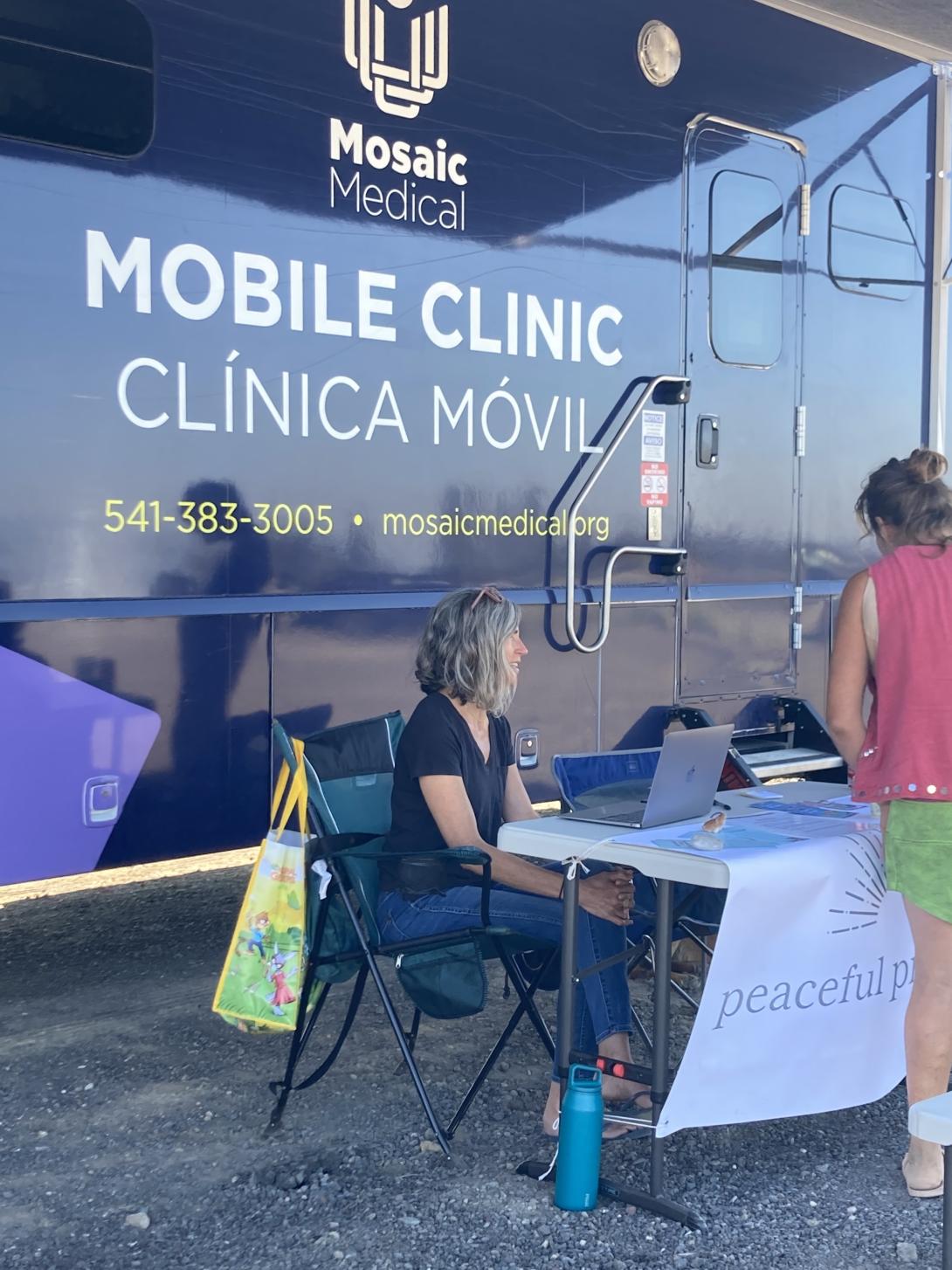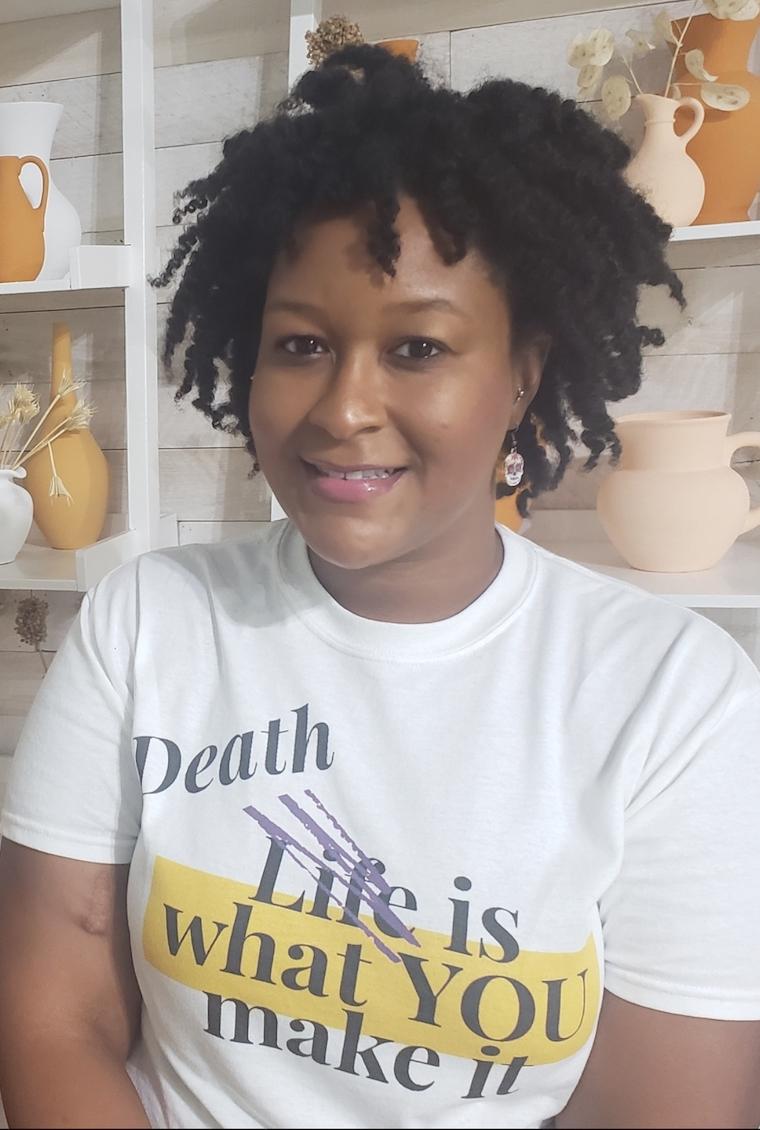
They’re called “death doulas” — like pregnancy doulas, only they provide emotional support and other services for people at the end of life, rather than at the beginning.
Oregon — and Portland in particular — has become a national hub for the profession, which arose around two decades ago. But on the national level, practitioners are still working toward awareness of their profession and collaboration with hospice services, saying their work can transform death from a medical event and into a process that allows people to take more control over their final moments.
“We need to change as a society, how we look at death,” Valenca Valenzuela, a death doula practicing in Portland, told The Lund Report. “We have become so death phobic because death and dying has come out of the hands of the family and into the medical system.”

It’s a pivotal moment for the profession. The national hospice industry is increasingly engaging with doula services and in Oregon, new programs are bringing end-of-life doula services to a wider range of people, including those living in rural areas and people experiencing homelessness.
Like better-known pregnancy and postpartum doulas, end-of-life doulas don’t practice medicine, and they’re not intended to take the place of health care providers. Instead, they supplement the traditional health care system — in death doulas’ case, they supplement hospice — with social, informational and emotional support. Many offer end-of-life planning assistance, family mediation and connection, and presence at the bedside. They serve as a compassionate hand guiding people and their loved ones through the death process.
Doulas’ end-of-life planning services may include help with advance directives, power of attorney and other legal forms, as well as planning the environment during a person’s last days, social activities before death, and offering information about burial or disposal.
But the heart of most doulas’ work is bedside presence. Due to billing requirements, hospice staff are often limited in the amount of time they can spend with a client — usually an hour or less per visit. This can come as a surprise to families who were expecting hospice to provide more encompassing assistance. In this way, doulas can take some of the pressure off hospice and provide families and the dying with additional bedside support.
This service looks different for every client and doula, depending on the client’s needs, wishes and personality, as well as the doula’s training and skills. It often involves facilitating connections with family members, creating a comforting space and a lot of listening. Depending on the doula, they may play therapeutic music on a stringed instrument or make art with the client.
While doulas are not integrated with local health care systems in most places, some hospice providers across the U.S. have begun to create their own doula programs, typically in their volunteer departments, said Erin Collins, who was a hospice nurse before joining a nonprofit doula service in Bend.
“Locally, we are well accepted and work in collaboration with the hospices in our area,” Collins told The Lund Report. “I think hospices are really starting to look at ‘out of the box’ thinking around better supporting their patients.”
There’s a recognition among providers that patients need services that only doulas can provide, multiple doulas told The Lund Report. But insurance doesn’t cover their services. What insurance including Medicare does cover is hospice, but with limits.
“My anecdotal experience with many who work in hospice care is of great frustration — among chaplains, nurses, social workers, medical directors — at the limitations that the Medicare reimbursement environment has imposed on hospice.” said Holly Pruett
“My anecdotal experience with many who work in hospice care is of great frustration — among chaplains, nurses, social workers, medical directors — at the limitations that the Medicare reimbursement environment has imposed on hospice,” said Holly Pruett, a Portland death doula who’s worked in alternative end-of-life services for the past 12 years.
With no way to bill insurance for end-of-life doulas services, their clients pay out of pocket.
“It's kind of a boutique service that, if you can afford to hire what is not provided for you through hospice, then you can hire yourself a death doula,” Pruett said.
Most doulas offer hourly rates on a sliding scale ranging from about $35 to $90 per hour, based on websites of doulas in Oregon where rates were posted. And some offer services pro bono for those who cannot afford to pay.
Nationally, efforts are underway to foster collaboration between hospice care and doulas, and to promote more awareness and understanding of doulas’ role among other end-of-life providers.
The National Hospice and Palliative Care Organization, the nation’s largest membership organization for these providers, has convened an End-of-Life Doula Council in order to bring a better understanding of doulas to the industry. Collins is vice-chair of that advisory council, and said 200 people recently attended a webinar about how to build a doula program within a hospice organization.

Spreading their reach
In Bend, Collins works as the program director at a nonprofit called The Peaceful Presence Project, which is working on ways to bring end-of-life doula services to a wider range of Oregonians. As part of that effort, its doulas recently began showing up at a local homeless services center once a week to offer end-of-life planning to people experiencing homelessness.
They ask visitors to the center who they want their emergency contact to be and what their advance medical directives are. Then they enter that information into a shared electronic medical record system so staff at hospitals can access it in the future. Doulas also ask about other needs that will need to be met at the time of death.
“When you ask a human being, who happens to be experiencing homelessness, what their preferences are, yeah, they do care. And they do have an idea about how they want to be cared for,” Collins said. “The top request is ‘I want my dog to be taken care of.’”
So far, they’ve assisted 85 people experiencing homelessness with planning.
Life expectancy among the houseless population is 42 to 50 years old, and most have no opportunity to do planning before they die, Collins said.
“Because of the way that advanced care planning is reimbursed, it really only happens at a Medicare wellness visit,” Collins said. Because you have to be 65 to qualify, “most of the folks don’t have Medicare. And they’re not old enough to be getting an annual wellness visit.”

Without an emergency contact or advance directive in the system, hospital staff will go down a list of next of kin to find a decision maker if the person at end-of-life can’t consent. “For a lot of folks experiencing homelessness,” Collins said, “there’s nobody on that list that they would want making a decision about how they were going to be cared for.”
The outreach to people experiencing homelessness is funded through a two-year $67,000 grant from the Central Oregon Health Quality Alliance. The same grant is also funding the nonprofit’s outreach to patients seen in rural health clinics, federally qualified health centers and senior centers in Crook and Jefferson counties.
Collins also recently earned a master’s in nursing education from Oregon Health & Science University and has helped spearhead a new program at her nonprofit to train doulas to practice in rural areas of Oregon, where there is a need for more end-of-life services.
The Peaceful Presence Project received a $15,000 grant from the Braemar Charitable Trust for the rural training program. It’s tailored to meeting the needs of rural residents, whose lifestyles and end-of-life circumstances may vary from urban residents. Its first class of 15 doulas will graduate in May. They plan to practice in Jackson, Josephine, Crook, Grant, Malheur, Lane, Douglas, Union, Wallowa, Coos and Lincoln counties. Collins received 78 applications for the rural doula training program, which she said demonstrates the need.
‘Portland is a hub for end-of-life doulas’
It’s unclear exactly how many death doulas there are in Oregon, as there is no mandatory registry. But according to local educators and a popular national registry, it’s a burgeoning profession.
Valenca Valenzuela teaches an online course for aspiring end-of-life doulas, and while her students are from all over the world, she said there are “almost always” several Portlanders in each cohort.
Valenzuela has worked in bereavement as a social worker since 2007 and as an end-of-life doula since 2020. Today she teaches the practice through Going with Grace and runs Raven & Rose, her doula service.
Through her role as an educator and other jobs in the field, Valenzuela is tapped into the local death doula community. She estimates there are hundreds of death doulas in the Portland area, though she is one of just 36 registered with the National End-of-Life Doula Alliance, known as NEDA. While NEDA offers a certificate of proficiency for those who pass its exam, there is no state or federal licensing or accrediting body that holds the liability or provides monitoring for end-of-life doulas — and many doulas never register with NEDA.
NEDA-registered doulas more than tripled in Oregon over the last two years alone. In May 2021, there were 24 listed on the registry and today, there are 82.
This follows a national trend. Ashley Johnson, a doula and president of NEDA’s board, told The Lund Report that in the past two to three years, the group has seen a noticeable uptick in people who are interested in becoming death doulas, as well as in people who are seeking their services.
Johnson said it’s all about the client’s needs and personality. In her own work as a doula, she said, she might play lively New Orleans music for a person who was flamboyant.
“In the background, soft, but just that vibrant beat, so that person knows and feels there’s that element of them in the room, and it’s not necessarily dark, gloomy — we are really catering to the person and their personality,” she said.
A doula might also bring in flowers or help fill last wishes.
“We want to acknowledge that life is ending, but we also want to empower people that it’s still their life, and they still have a choice.”
“The beauty of it is having them transition with peace on their heart, feeling their fulfillment,” Johnson said. “They feel like they mattered … We want to acknowledge that life is ending, but we also want to empower people that it’s still their life and they still have a choice.”
The death doula profession in the U.S. has spread slowly over the past two decades. But doulas say the work is a continuation of practice that goes back thousands of years in different cultures.
“In certain Indigenous cultures, they may not use the word ‘death doula’ or ‘end-of-life doula,’ but it has been something — a long-standing tradition — within their culture that they have been practicing,” Johnson said.
Lack of diversity among Oregon’s doulas
While there is broader racial diversity among end-of-life doulas in other states, Oregon’s are disproportionately white. Among the headshots of the 82 Oregon doulas listed with NEDA, only two appear to be women of color, though The Lund Report did not reach out to every doula to verify their race. In Oregon and nationally, women dominate the field.
Collins said that out of the 125 doulas who’ve trained through the Peaceful Presence Project in Bend, four or five have been women of color.
Collins said at one point, her nonprofit applied for a grant to re-create some of its training materials in Spanish but was not awarded the funding.
Valenzuela, who identifies as Mexican and Irish, said that she would love to see more diversity in the profession, but she noted there are economic barriers to being a doula — it’s difficult to earn a steady income doing the work. She said given the systemic disparities people of color face, many may not have the time or economic ability to take on such a time-consuming passion project.
Doulas who can speak languages other than English in Oregon would not only make the service more accessible, it could also greatly benefit non-English speakers in medical settings, she said, because they could help advocate for their client’s end-of-life wishes and medical directives.
Views on licensure
In 2009, death doulas in Oregon made headlines when state legislators approved a bill to ostensibly regulate their work. It was intended to regulate home burials and other bodily dispositions outside the funeral industry, which are legal.
The law, spearheaded by then-Sen. Vicki Walker, created a “death consultant” license through the Oregon Mortuary and Cemetery Board that anyone outside the funeral and cemetery business would need in order to be paid for transporting or handling a corpse.
But in reality, while doulas offer information to families about their options, they don’t perform those services — so they don’t get the license, Pruett said. In fact, according to the Oregon Mortuary and Cemetery Board, no one in Oregon holds a death consultant license, and only one person has ever passed the exam to become one.
Today, there continues to be no regulating body or licensure for end-of-life doulas in Oregon or nationally, and their training isn’t standardized either.
Collins said the lack of licensure for doulas “can be problematic because it ends up being like the Wild West and people don’t really know what they’re getting.”
The training Collins’ nonprofit has developed is centered on the compassionate communities model, which seeks to complement the health care system and serve as a bridge for care back into the home. The course is eight weeks long — much longer than the weekend course she initially took to become a doula. The course Valenzuela teaches online is three months long.

Both programs are designed to help students pass the NEDA proficiency exam, but most doulas don’t seek the designation. Of the 1,500 listed with NEDA, only about a third successfully took the test to become “NEDA Proficient,” according to membership numbers Johnson shared.
Additionally, doulas listed with NEDA aren’t necessarily active, which can make it a challenge for people who are already facing very stressful circumstances to find help. Collins hopes to create a public directory listing doulas in Oregon.
The goal, Collins said, is for people to quickly find doulas who “have been through the training, they’re vetted, we know they’re working, we know they’ve committed to respond within 48 hours if someone is calling or emailing them with a need.”
Collins is also looking at ways to create a certification program for community health workers who want to provide doula services in addition to their current work. This would enable them to bill Medicaid for providing end-of-life doula services, making it more accessible to low-income people, she said.
Valenzuela and Johnson both said the ability to bill Medicaid would be great, but they also see downsides to trying to standardize the profession.
Johnson called licensure a “slippery slope,” but said NEDA stands “in the middle” of that debate.
Most doulas want to professionalize their field and help people who don’t have money, Valenzuela said. But she called it a “balancing act” because there’s a fear that standardizing the profession and getting insurance involved could change the nature of doulas’ work — the way it changed hospice by putting limitations on the amount of time hospice staff can stay during a visit.
“I joke that Oregon would license air if they could,” Valenzuela said. “My worry is if that started to happen, that we would really lose the heart of the doula.”
She said being a death doula is more than a profession — it’s a movement offering a different perspective on death, and ultimately, on life itself.
“The more reverence we have for death, the more reverence we have for life,” she said. “Because through your understanding that life is short and we’re all going to die … you then understand how precious and important every life is.”